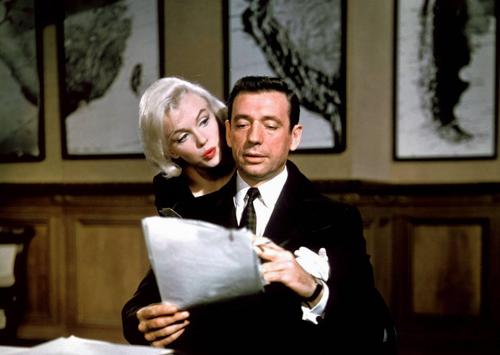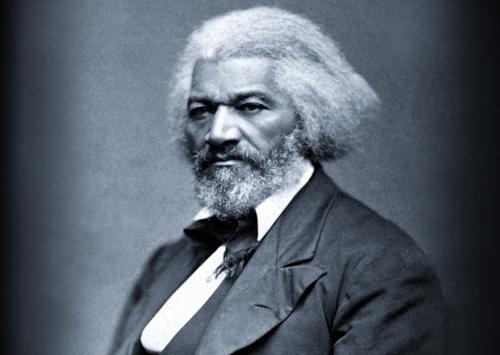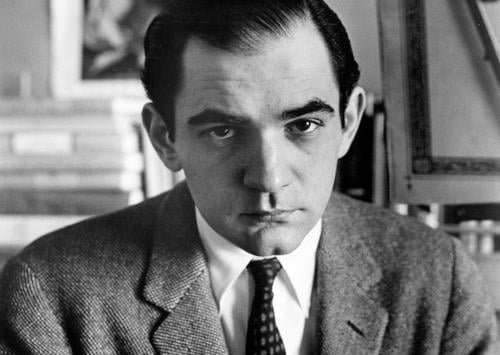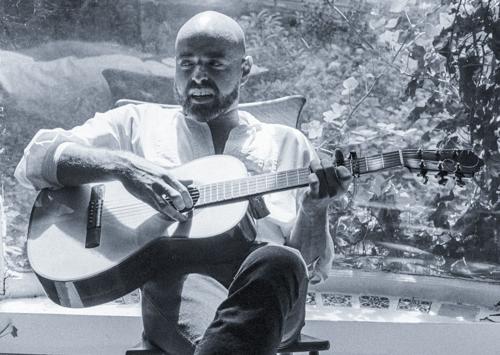Listen to New Voices on Studs Terkel our partnership with 826CHI-here! Read the Story
Showing 1 - 15 of 78 results
-
Yves Montand ; part 1
1962 Interviewing Yves Montand in Paris : Studs Terkel in France (part 1).
-
Wolfgang Rubsam discusses his career as an organist and Associate Professor of church music at Northwestern University
Mar. 1, 1984 Studs interviews Wolfgang Rubsam who is performing at the St. Clements Catholic Church in Chicago. They discuss the sounds of the harpsichord, piano, and organ. Rubsam explains how the organ builder and the acoustics in a church affects the sound of the organ. Rubsam talks a little about various teachers he has had and the things he learned from each. The musical numbers are removed from this edited version of the original recording.
-
Ute Lemper in conversation with Studs Terkel
Nov. 1, 1994 Interviewing German actress and cabaret singer Ute Lemper. Program includes excerpts of a November 9, 1963 interview with Lotte Lenya, and a November 30, 1960 interview with Marlene Dietrich.
-
Thomas Wikman discusses Baroque music and its rise in history
Jun. 30, 1982 Studs interview with Thomas Wikman about MOB (Music of Baroque). Wikman shares historical details of the rise of Baroque music. Studs and Wikman discuss various Baroque pieces and the instruments used. Wikman describes various pieces of his work and members of his group. They discuss Baroque composers, and Wikman describes how acoustics play a role in their music selections for live performances. Studs also explores Wikman's childhood and influences to his music.
-
Terkel comments and presents musical performance of Pat Ferrari, Ron Steele and Jim Crockett
Jun. 30, 1980 Presenting music and interviewing studio musicians Pat Ferrari, Ron Steele and Jim Crockett editor of Guitar Play Magazine.
-
Studs Terkel presents an Easter program of commentary and secular and sacred music
Mar. 24, 1988 Terkel presents an Easter program. Songs include "Lord of the Dance/Simple Gifts" sung by Bill Crofut and Benjamin Luxon; "Plenty Good Room" sung by Roland Hayes; "Vidé" a carnival song of Martinique; "Wondrous Love" sung by Ed McCurdy; "The Cuckoo" sung by Burr Tillstrom as Kukla; "The Cuckoo's Nest" sung by Jimmy MacBeath; "The Cuckoo" sung by Jean Ritchie; "Gloria," Malaga Flemenco song; "Old Blind Barnabus" sung by Golden Gate Quartet; and Bach's "St.
-
Studs Terkel presents a program in honor of the birthday of abolitionist and African American leader Frederick Douglass
Feb. 15, 1971 Studs Terkel presents a program in honor of the birthday of abolitionist and African American leader Frederick Douglass, including excepts from Terkel's 1964 interview with African-American scholar, author and social historian Lerone Bennett. Terkel reads at length from Douglass' autobiography, "My Bondage and My Freedom," focusing on Douglass' interactions with slave owners Hugh and Sophia Auld.
-
Studs Terkel discusses, through music, inventions that made the lives of men and women easier
Jun. 10, 1988 Songs include "Hello, Frisco" sung by Sam Ash and Elida Morris; "He'd Have to Get Under - Get Out and Get Under (To Fix Up His Automobile)" sung by Will Halley; "Come Josephine in my Flying Machine" sung by Blanche Ring; "Jay Gould's Daughter" sung by Ed McCurdy; "Mr.
-
Studs Terkel discusses the WPA Arts Project
Sep. 14, 1989 The influence of the WPA on the music of the 1930's. The heroic sounds heard in song, movies, and theater. He provides Bing Crosby's version of Yip Harburg's "Brother Can You Spare a Dime". As well as the Almanac Singers performing "Roll the Union On". Both Moll's Song and the final scene of Blitzstein's, "The Cradle Will Rock" are performed. Terkel provides a host of other songs which highlight the music of the 1930's. Extensive discussion on "The Cradle Will Rock" with its producer John Houseman.
-
Studs Terkel discusses songs about domestic violence against women
Aug. 5, 1981 Terkel presents songs that discuss the subject of domestic violence against women. Songs range from ballads in musicals, to jazz torch songs, to popular music at the time.
-
Studs Terkel discusses contemporary American music with composer and trombonist Bill Russo
May. 18, 1983 Discussing the origins of three schools of contemporary American music, their influence upon each other, and the new directions composers are taking with their music with composer and trombonist Bill Russo.
-
Studs Terkel discusses and comments the musical "The Cradle Will Rock"
Jan. 28, 1992 Studs Terkel presents The Cradle Will Rock, a 1937 musical play. Includes interview with Marc Blitzstein and Hiram Sherman talking about the challenges of presenting for the first time.
-
Shel Silverstein discusses his books, children's literature, and art; part 2
Nov. 20, 1961 Shel Silverstein discusses his books and children's literature, and art. Shel Silverstein discusses his contemporaries, art, and life experiences.
-
Presenting music with pianist and composer Larry Schanker
May. 30, 1991 Musical performance by Larry Schanker






